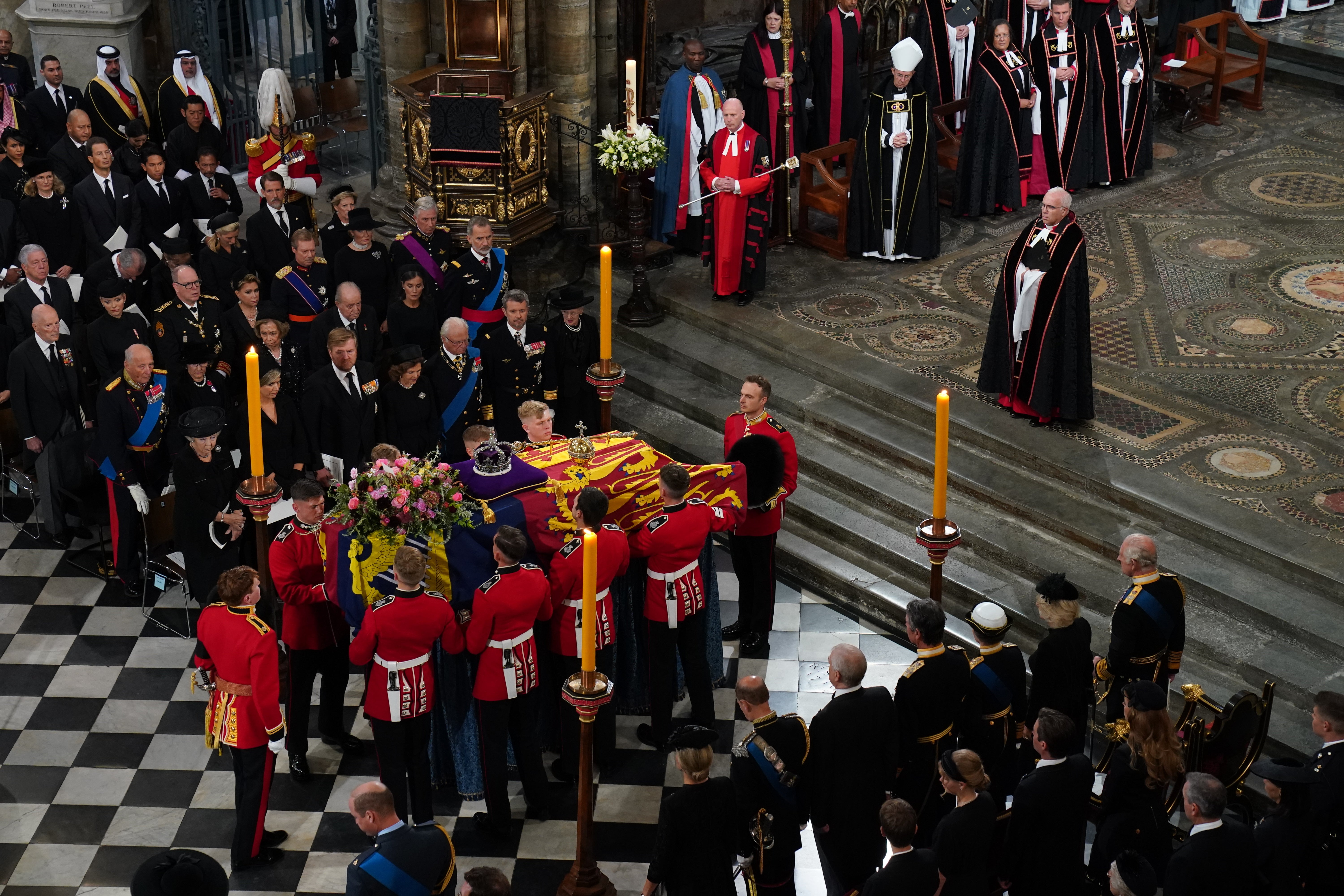Queen’s funeral music contains echoes of happier times
The pieces played at the funeral had links to the Queen’s marriage and coronation.

Your support helps us to tell the story
From reproductive rights to climate change to Big Tech, The Independent is on the ground when the story is developing. Whether it's investigating the financials of Elon Musk's pro-Trump PAC or producing our latest documentary, 'The A Word', which shines a light on the American women fighting for reproductive rights, we know how important it is to parse out the facts from the messaging.
At such a critical moment in US history, we need reporters on the ground. Your donation allows us to keep sending journalists to speak to both sides of the story.
The Independent is trusted by Americans across the entire political spectrum. And unlike many other quality news outlets, we choose not to lock Americans out of our reporting and analysis with paywalls. We believe quality journalism should be available to everyone, paid for by those who can afford it.
Your support makes all the difference.The music played at the Queen’s state funeral harked back to the happier occasions of her marriage to the Duke of Edinburgh and her coronation.
Many of the pieces were chosen because of their special significance both to the Queen and to Westminster Abbey, where thousands of mourners gathered for the funeral.
Among the hymns were The Lord’s My Shepherd, which was sung at the Queen’s wedding to Philip in the abbey in 1947.
The anthem O Taste and See was written by Ralph Vaughan Williams, whose ashes are also buried in the church, for the Queen’s coronation in the abbey in 1953.
Another hymn at the service had a royal connection: Love Divine, All Loves Exceeding was sung in an arrangement first heard for the Prince and Princess of Wales’ wedding in 2011.
The Queen’s Piper helped close the funeral with a rendition of the traditional piece Sleep, Dearie, Sleep.
Pipe Major Paul Burns, the monarch’s personal player at the time of her death, performed as the service came to an end, before the coffin left Westminster Abbey for Windsor.
Maj Burns of the Royal Regiment of Scotland is the 17th holder of the role, which was established in 1843 during the reign of Queen Victoria.
Before the service, Matthew Jorysz, assistant organist of the abbey, played a series of pieces including Elegy Op 58 by Sir Edward Elgar, Reliqui Domum Meum by Sir Peter Maxwell Davies, and Fantasy On O Paradise by Malcolm Williamson.
He also played Romanza (Symphony no 5 in D) by Ralph Vaughan Williams, arranged by Robert Quinney.
The sub-organist played two pieces by Elgar: Andante Espressivo (Sonata in G Op 28) and Sospiri Op 70.
After Maj Burns’ performance of Sleep, Dearie, Sleep, the sub-organist played Johann Sebastian Bach’s Fantasia in C Minor as the procession of the coffin began.